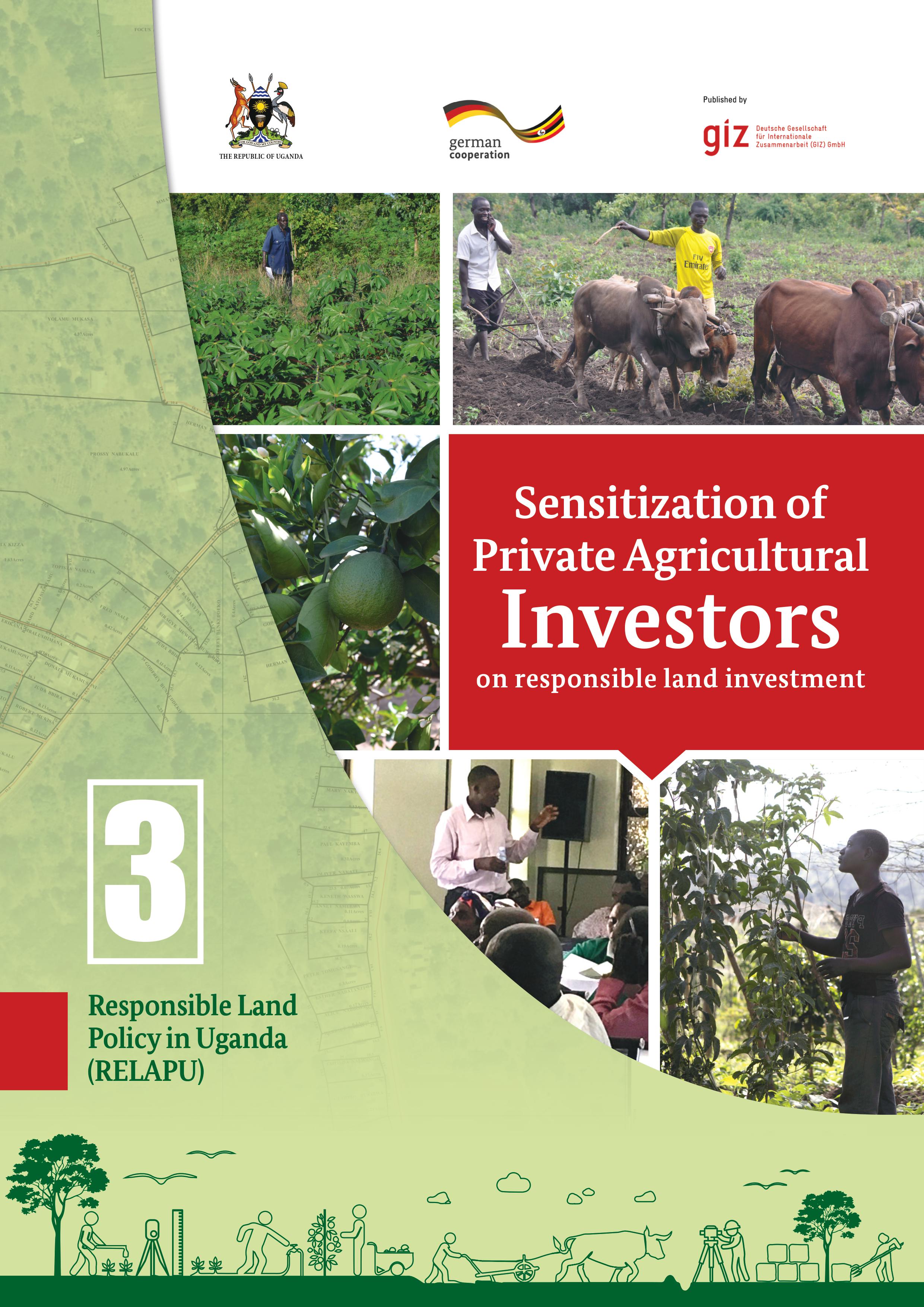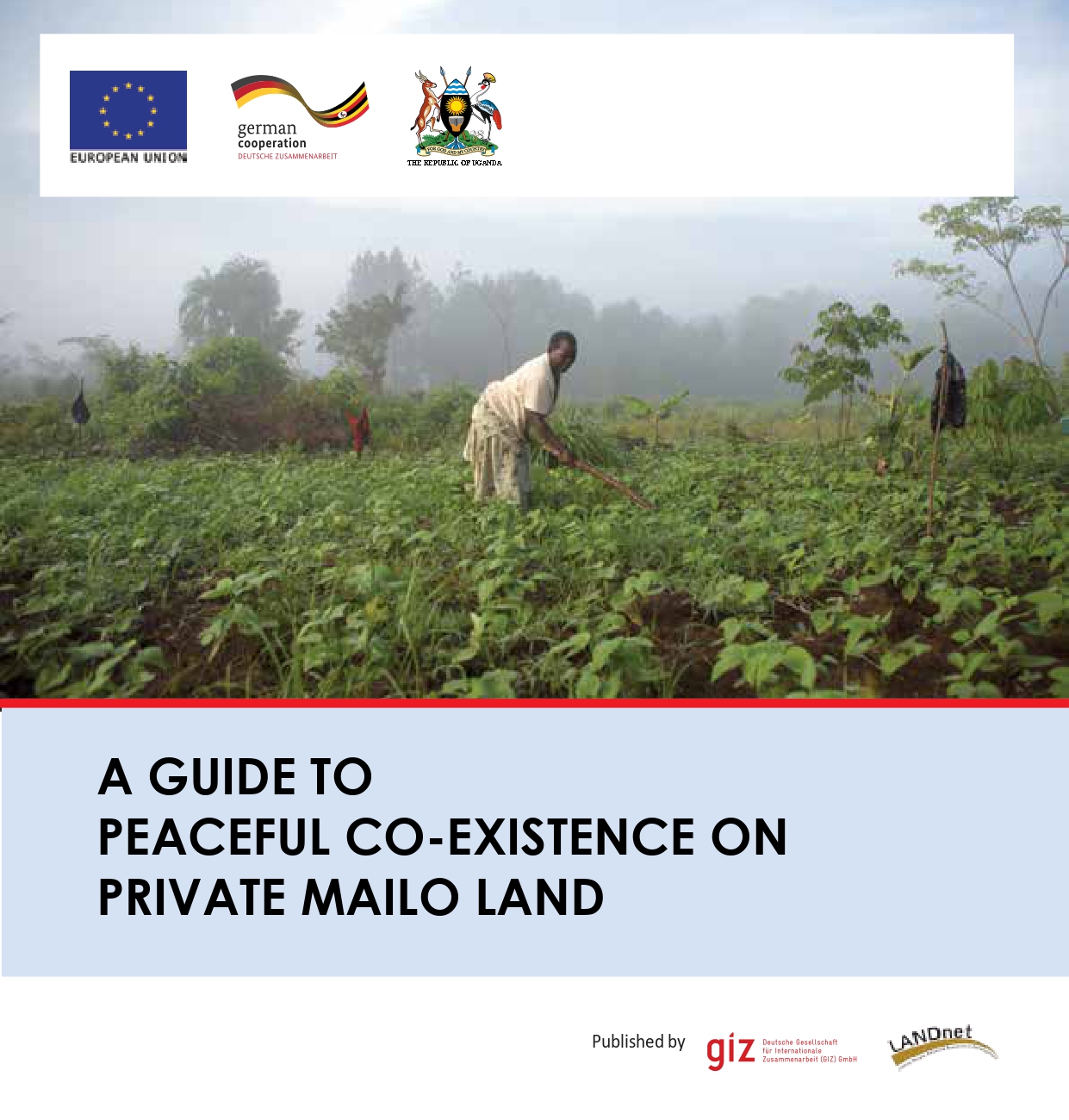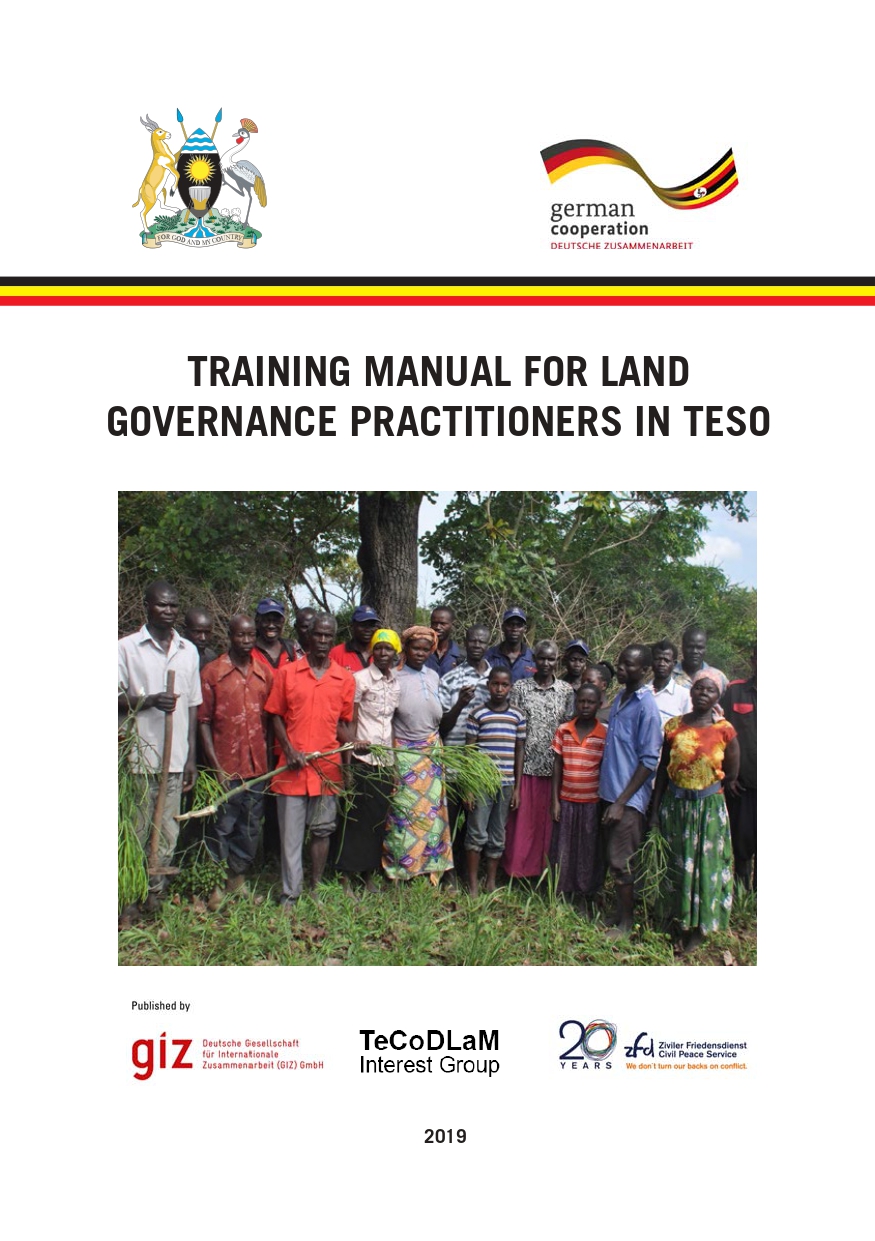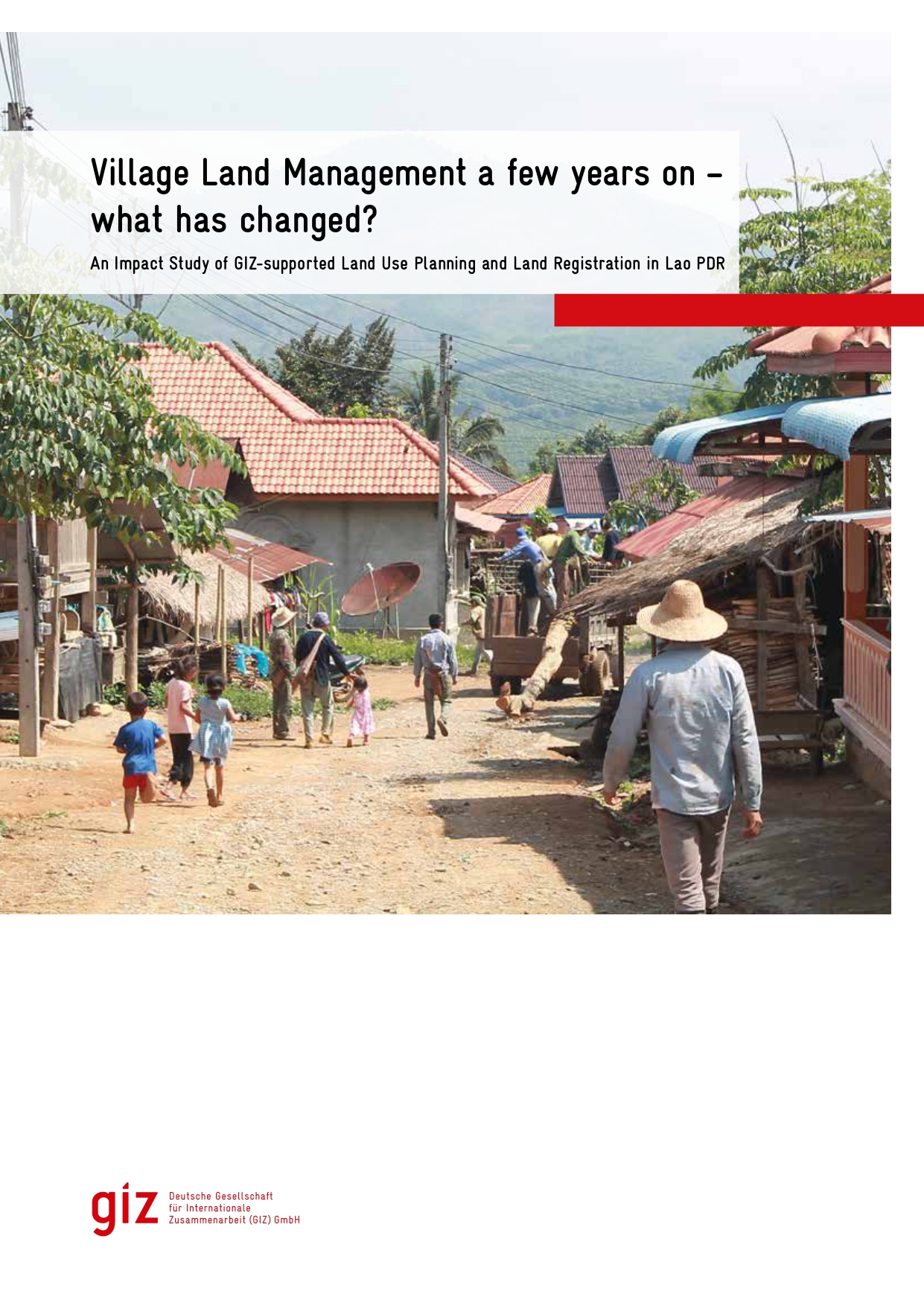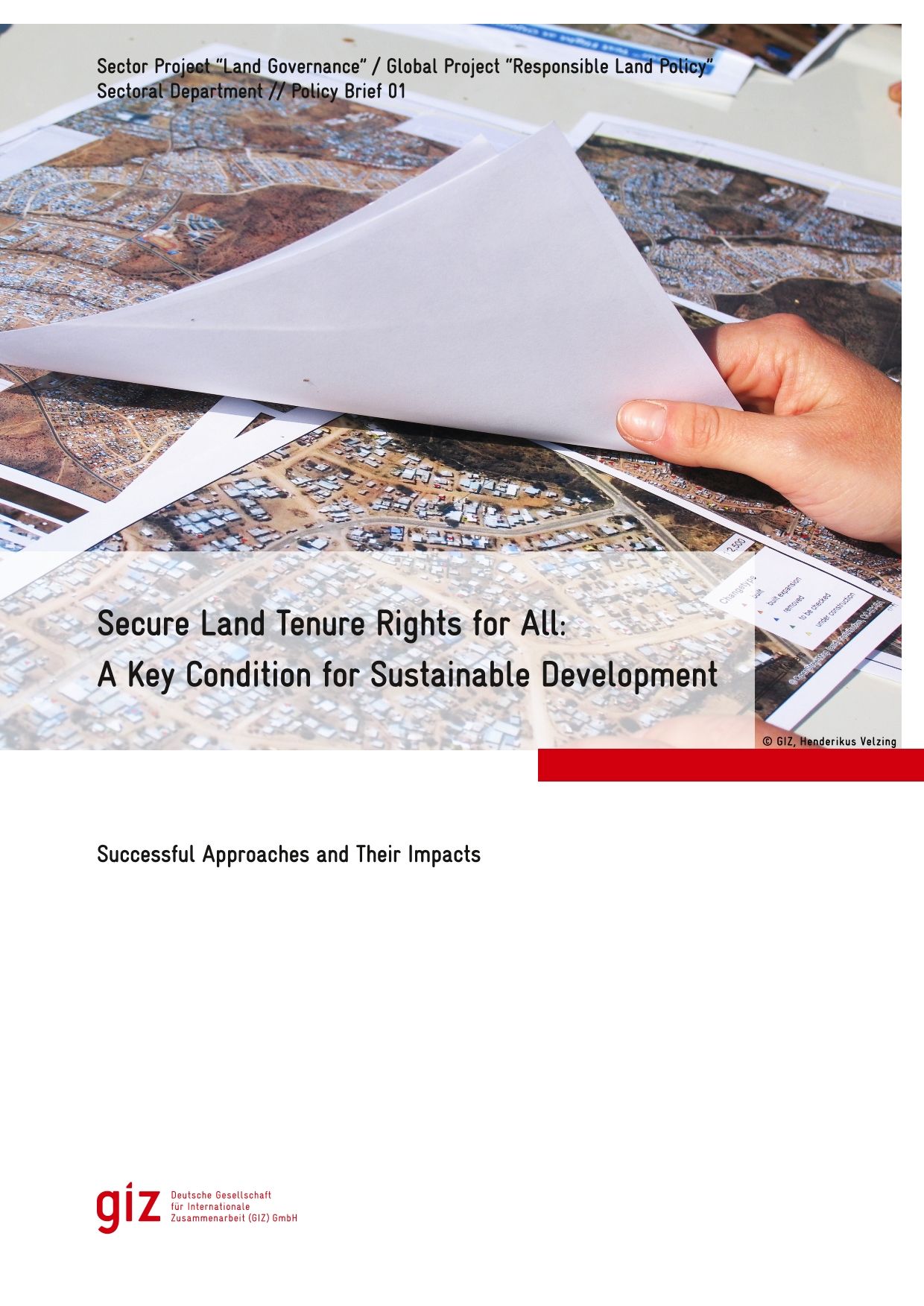
Topics and Regions
GIZ Sector Project Land Governance
Creating livelihoods - securing access to land
On behalf of the German Federal Ministry of Economic Cooperation and Development, the GIZ Sector Project Land Governance supports inovative, tried-and-tested strategies for strengthening governance in the area of land policy and land management in national and international policy processes and initiatives.
In order to facilitate this objective, the sector project follows the follwoing three approaches:
Policy advice and positioning in national and international processes
The project provides advice to the German Federal Ministry for Economic Cooperation and Development (BMZ) on formulating policies and developing strategies in connection with land rights. To this end, the project prepares strategy and discussion papers, statements and thematic contributions to BMZ’s political discussions. The project cooperates here with national and international partners and supports specialist international debate.
Strategy development and knowledge generation
The preparation and development of manuals on issues such as land conflicts, land use planning and large-scale investments in agriculture contribute significantly to the knowledge generations of the Secotr Project. The strategies developed are integrated into knowledge platforms and networks, where they are made available to international cooperation actors. Connections to issues such as gender, forestry, soil conservation, human rights and urban development supplement the project’s advisory services.
Knowledge transfer, mainstreaming and networking
International cooperation actors receive support from the sector project through capacity development measures. These include awareness-raising, training courses and exchange formats for experts and managers in the area of land administration and land rights. Moreover, intensive knowledge management, advisory services for projects abroad and involvement in networks help to spread innovative approaches to improving governance with regard to land.
For further information, please visit our GIZ profile page https://www.giz.de/en/worldwide/79314.html
Details
Public Email
Location
Contributions
Displaying 31 - 37 of 37The private Mailo tenure system
Mailo is a unique tenure system in central Uganda. It is divided into three parts: Kabaka’s Mailo, Official Mailo and Private Mailo. Private Mailo belongs to an individual, so-called landowner and it can be sold, subdivided or transmitted. Conflicts on private Mailo can occur between landowners & tenants, tenants & tenants, and landowners & landowners. A key challenge is that there is a lack of knowledge and transparency on land rights on both sides.
Sensitization of private agricultural investors on responsible land investment in Uganda
The German Federal Ministry of Economic Cooperation and Development (BMZ) created the Special Initiative “One world, No hunger” aimed to eradicate extreme hunger and poverty. Special focus is on Action Area 6 “Promotion of responsible land use and improvement of access to land”. The German Society for International Cooperation (GIZ) has presently implemented the Global Programme on Responsible Land Policy in 6 countries: Peru, Laos, Benin, Madagascar, Ethiopia and Uganda.
A GUIDE TO PEACEFUL CO-EXISTENCE ON PRIVATE MAILO LAND
Mailo tenure is the most legislated form of tenure in Uganda, having its origins in the 1900 Buganda Agreement. Reforms over the years have seen the evolution of this tenure that is essentially freehold in nature, albeit with its local characteristics arising out of an unresolved tenant question. This status quo was reinstated in the 1995 Constitution, the Land Act and its subsequent amendments. Whereas it is expected that reforms introduced by the Constitution and Land Act would suffice in stabilizing Mailo tenure, this has not happened in practice.
Training manual for land governance practitioners in Teso Uganda
The need to strengthen the capacity of CSOs, DLOs, ICU and partners working on land governance in Teso has become obvious if harmonisation of the customary and formal land management systems is to be realised. This is expected to enable a coordinated and systematic approach with one voice.
Knowledge of policies on land governance not only improves the way issues pertaining to land rights are handled; but also minimises waste of time and money lost on land conflict.
Village Land Management a few years on – what has changed?
Since 2010, the GIZ Land Programme in Lao PDR has sought to improve the land tenure security of rural communities. The programme currently consists of three projects – the BMZ-commissioned Land Management and Decentralised Planning (LMDP) Project, the Enhanced Land Tenure Security (ELTeS) sub-project within a global programme on responsible land policy, as well as the German contribution to the Mekong River Land Governance (MRLG) Initiative.
Secure Land Tenure Rights for All: Key Condition for Sustainable Development
The aim of this policy paper is to present successful approaches to secure land tenure rights in rural and urban areas. To support future programmatic decisions by the Federal Ministry for Economic Cooperation and Development (BMZ), this paper focusses especially on impacts and good practices. It discusses examples from the German technical cooperation but also includes good practices and impacts achieved by other development partners.
Deutsche Gesellschaft für Internationale Zusammenarbeit (GIZ) GmbH
As a service provider in the field of international cooperation for sustainable development and international education work, we are dedicated to shaping a future worth living around the world. We have over 50 years of experience in a wide variety of areas, including economic development and employment promotion, energy and the environment, and peace and security. The diverse expertise of our federal enterprise is in demand around the globe – from the German Government, European Union institutions, the United Nations, the private sector, and governments of other countries.

